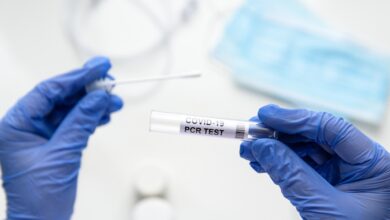Oxford challenge trial assessing coronavirus reinfection, immune responses

The University of Oxford announced Monday it launched a challenge trial intentionally re-infecting participants with the novel coronavirus to better understand how the immune system mounts a response the second time around, and potentially pave the way for improved vaccines and treatments.
Britain marked the first country worldwide to greenlight “challenge trials” in February, Reuters reports, which generally involves “a carefully controlled study that involves purposefully infecting a subject with a pathogen or bug, in order to study the effects of that infection,” per a related university release posted Monday.
“The information from this work will allow us to design better vaccines and treatments, and also to understand if people are protected after having COVID, and for how long,” Helen McShane, professor of vaccinology at the Department of Paediatrics, University of Oxford and chief investigator on the study, said in part in the release.
GETTING CORONAVIRUS COULD PROTECT AGAINST REINFECTION FOR AT LEAST 5 MONTHS: STUDY
The study was divided into two phases; the first establishing the lowest dose of virus to initiate virus replication, but only result in “little or no symptoms” in up to 64 healthy adults aged 18 to 30 who have fully recovered from a previous coronavirus infection. The second phase, planned to launch this summer, will see all participants infected with the established dose from the prior phase.
The study is assessing the original strain, and people partaking in the study will go undergo quarantine in a “specially designed hospital suite” for at least 17 days. Researchers will monitor participants and run tests like CT scans on the lungs and MRI scans on the heart, per the release.
CLICK HERE TO GET THE FOX NEWS APP
Participants who experience symptoms will receive the Regeneron antibody treatment, and all participants will be released from the hospital when they are no longer infectious.
“The findings could have important implications for how we handle Covid-19 in the future, and inform not just vaccine development but also research into the range of effective treatments that are also urgently needed,” said Shobana Balasingam, vaccines senior research advisor at Wellcome Trust, funding the study, in part in the release. “Keeping up the pace of scientific research and development, through crucial studies such as this remain the only way we will truly get ahead of this pandemic and bring it under control.”
Source link





